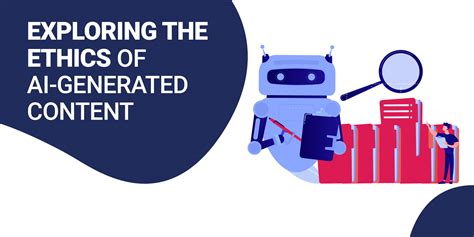As the ethical implications of training AI models with user-generated content from platforms like StackOverflow come to light, the debate intensifies. The discussions surrounding the recent actions by users protesting against OpenAI’s partnership shed light on the complexities of content ownership and data usage. One of the key arguments revolves around the licensing of content on StackOverflow under CC BY-SA, raising questions about the extent of control users have over their contributions.
Amidst the debate on ethical AI training, users express concerns about the implications of the General Data Protection Regulation (GDPR) on personal data and content. The comments reflect a mix of opinions regarding the application of GDPR to user-generated content, with some highlighting the distinction between personal information and voluntarily shared content. The discussions touch on the challenges of data ownership in the digital age and the balance between platform rights and user privacy.
The comments also delve into the concept of moral rights in content creation, emphasizing the impact of partnerships like the one between StackOverflow and OpenAI on user-authored content. Users analyze the legal dimensions of content licensing, highlighting the nuances of intellectual property rights in the context of AI training and data utilization. The debate expands to include considerations of fair use, copyright attribution, and the responsibilities of platforms in handling user-contributed content.
The protest actions taken by some users, such as altering answers to convey messages of dissent, prompt discussions on the effectiveness of such methods and the platform’s responses. The tensions between user agency, platform policies, and ethical data practices surface in the debates, showcasing the diverse viewpoints on the intersection of technology and user rights. The implications of content alteration, account suspensions, and platform governance in the face of protests raise broader questions about online activism and individual expression in digital spaces.
Additionally, the discussions highlight the evolving landscape of AI ethics, AI training methodologies, and the societal impacts of machine learning models trained on public data. The comments underscore the need for transparency, accountability, and user consent in AI training processes, especially when user-generated content is involved. The complexities of balancing innovation, data privacy, and ethical considerations in the AI era come to the forefront in the discourse around the StackOverflow and OpenAI partnership.
Overall, the debates sparked by user comments shed light on the multifaceted nature of content ownership, licensing agreements, ethical AI training, and the regulatory frameworks that govern data protection. As technology continues to advance, these discussions offer valuable insights into the ethical dilemmas faced by online platforms, AI developers, and users navigating the digital landscape. The evolving discourse on data ethics, platform responsibilities, and user empowerment signals a crucial moment in shaping the future of content creation, AI development, and user rights in the digital age.


Leave a Reply